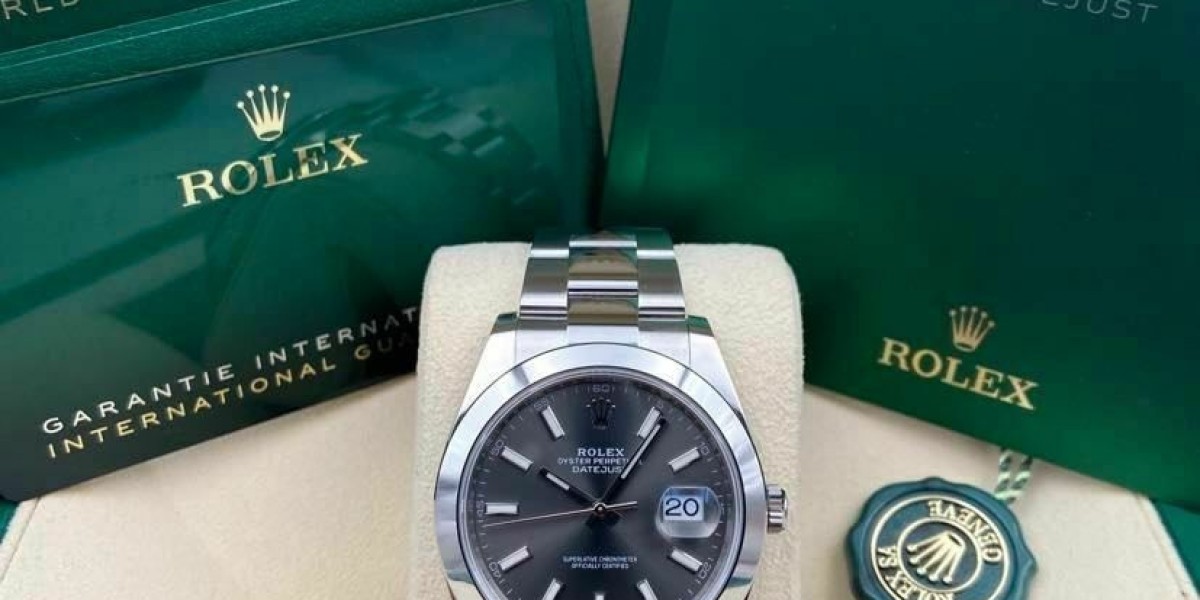In recent years, the luxurious watch market has seen a rise in the recognition of replica watches, notably those modeled after high-end manufacturers akin to Rolex. While these replica watches could look almost identical to the real thing, there is usually a query of legality surrounding their sale and distribution. In this text, we'll discover the authorized implications of promoting replica Rolex watches.
Rolex is a Swiss luxurious watchmaker known for its high-quality timepieces that are sometimes regarded as standing symbols. On account of the recognition and recognition of the model, Rolex watches are often counterfeited and replicated by unauthorized manufacturers. These replica watches are sold at a fraction of the value of genuine Rolex watches, making them a pretty choice for consumers looking to sport a luxury watch with out the hefty worth tag.
However, the sale of replica Rolex watches is a contentious difficulty, because it raises questions about intellectual property rights and trademark infringement. Rolex holds quite a few trademarks for its brand name, logo, and designs, which are protected below international copyright legal guidelines. The unauthorized reproduction and sale of Rolex watches that bear these trademarks can be considered a violation of those laws.
In the United States, the sale of replica Rolex watches generally is a violation of the Lanham Act, which governs trademark infringement and unfair competition. Below the Lanham Act, it is prohibited to sell counterfeit goods that bear a trademark with out the authorization of the trademark holder. This means that selling replica Rolex watches that feature the Rolex brand or branding with out permission from Rolex can result in legal penalties.
Additionally, the sale of replica luxury watches Rolex watches may also be considered a violation of copyright law. Rolex holds copyrights for its watch designs, that are protected beneath the U.S. Copyright Act. Unauthorized reproduction and sale of Rolex watch designs can represent copyright infringement, which can lead to authorized action by Rolex.
Furthermore, the sale of replica Rolex watches can hurt the fame and integrity of the Rolex model. Rolex is known for its excessive-high quality craftsmanship and a focus to element, and replica watches may not meet the same requirements of quality. Consumers who buy replica Rolex watches thinking they are genuine may be disappointed by the inferior quality of the product, tarnishing the status of the brand.
In addition to authorized implications, selling replica Rolex watches can also have economic consequences. The luxury watch business depends on exclusivity and model worth to take care of high prices and demand for genuine watches. The sale of replica watches undermines this exclusivity and might influence the economic value of the brand. By promoting replica Rolex watches, unauthorized dealers are basically profiting off the reputation and success of the Rolex brand with out contributing to the innovation and craftsmanship that make Rolex watches so desirable.
In conclusion, promoting replica Rolex watches with out authorization from Rolex can have legal, economic, and reputational consequences. The unauthorized reproduction and sale of Rolex watches can constitute trademark and copyright infringement, which are violations of mental property rights. Additionally, promoting replica Rolex watches can hurt the status and integrity of the Rolex model, in addition to undermine the financial worth of the luxurious watch business. Due to this fact, it is important for sellers and consumers to pay attention to the authorized implications of selling replica watches and to prioritize authenticity and transparency of their transactions.







